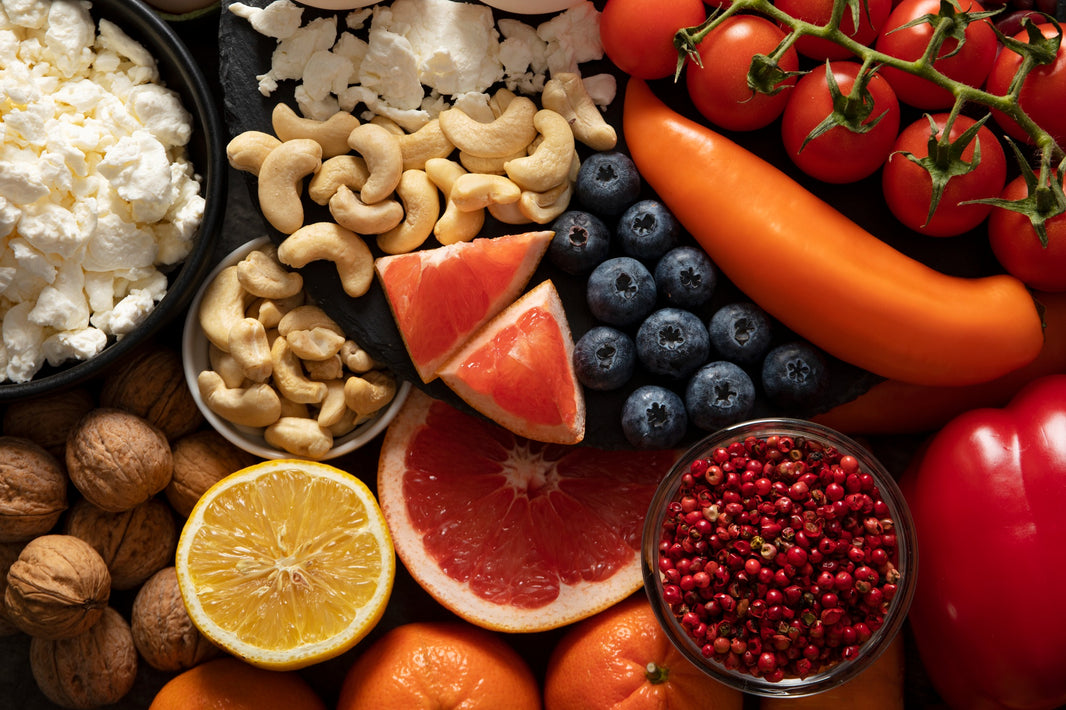When it comes to optimizing your workouts and achieving your fitness goals, what you eat before and after exercise plays a crucial role. Proper nutrition fuels your body, enhances performance, supports recovery, and helps build muscle. In this blog post, we’ll dive into the essentials of pre- and post-workout nutrition, exploring what to eat, when to eat it, and how these choices can help you maximize your gains.
The Importance of Pre-Workout Nutrition
The primary goal of pre-workout nutrition is to provide your body with the energy it needs to perform at its best during exercise. Consuming the right nutrients before a workout can help:
- Fuel Your Muscles: Carbohydrates are the body’s preferred source of energy, especially for high-intensity workouts. Eating carbs before exercise ensures that your muscles have enough glycogen (stored glucose) to power through your workout.
- Prevent Muscle Breakdown: Including protein in your pre-workout meal can help supply your muscles with amino acids, reducing the risk of muscle breakdown during exercise.
- Enhance Performance: Proper nutrition can help you work out harder and longer, leading to better results over time.
What to Eat Before a Workout
A balanced pre-workout meal or snack should include a combination of carbohydrates and protein. The timing of your meal can also affect your performance, so it’s important to plan accordingly.
-
Carbohydrates:
Carbs are your body’s main source of energy. Complex carbohydrates, such as whole grains, fruits, and vegetables, provide a steady release of energy, while simple carbs like fruits and energy bars can offer a quick boost if consumed closer to your workout.- Examples: Oatmeal with banana, whole grain toast with peanut butter, fruit smoothie with yogurt.
-
Protein:
Including a source of protein before your workout helps prime your muscles with amino acids, which are essential for muscle repair and growth. Lean protein sources like chicken, fish, eggs, or plant-based options like tofu are ideal.- Examples: Greek yogurt with berries, a protein shake with a banana, scrambled eggs with whole grain toast.
-
Fats (in moderation):
While fats are an important part of a balanced diet, they take longer to digest and can slow down the absorption of other nutrients. It’s best to keep fats to a minimum in your pre-workout meal if you’re eating close to your workout.- Examples: A small amount of nuts or avocado can be included if you’re eating 2-3 hours before exercise.
Timing Your Pre-Workout Meal
The timing of your pre-workout meal is crucial for ensuring that your body has the energy it needs without feeling weighed down:
-
2-3 Hours Before Workout:
A balanced meal with carbs, protein, and a small amount of fat is ideal. This allows enough time for digestion, providing sustained energy throughout your workout.- Example: Grilled chicken with quinoa and steamed vegetables.
-
30-60 Minutes Before Workout:
If you’re eating closer to your workout, opt for a lighter snack that’s easy to digest, focusing on simple carbs and a small amount of protein.- Example: A banana with a tablespoon of peanut butter or a small protein smoothie.
The Importance of Post-Workout Nutrition
After your workout, your body is in recovery mode, working to repair muscle fibers, replenish glycogen stores, and reduce inflammation. Post-workout nutrition is essential for:
- Muscle Repair and Growth: Protein consumed after exercise helps rebuild damaged muscle fibers, leading to muscle growth and strength gains.
- Glycogen Replenishment: Carbohydrates help restore glycogen levels, which can be depleted after a workout, especially after intense exercise.
- Reducing Muscle Soreness: Proper nutrition can help reduce muscle soreness and inflammation, allowing you to recover faster and get back to your next workout.
What to Eat After a Workout
The ideal post-workout meal should include a combination of protein and carbohydrates. This combination supports muscle recovery and replenishes energy stores.
-
Protein:
Aim for 20-30 grams of protein after your workout to provide your muscles with the necessary amino acids for repair and growth. Fast-digesting protein sources like whey protein or eggs are great options.- Examples: Grilled chicken breast, protein shake with milk, scrambled eggs.
-
Carbohydrates:
Pair your protein with carbs to replenish glycogen stores. The type of carbs you choose can depend on the intensity of your workout. Higher-intensity workouts may benefit from quicker-digesting carbs, while moderate exercises might be paired with complex carbs.- Examples: Sweet potatoes, brown rice, a fruit smoothie.
-
Hydration:
Don’t forget to rehydrate after your workout. Water is essential for recovery, especially if you’ve been sweating heavily. Consider adding electrolytes if you’ve had an intense, sweaty session.- Example: Water, coconut water, or an electrolyte drink.
Timing Your Post-Workout Meal
The “anabolic window,” or the period right after exercise, is often considered the best time to consume your post-workout meal. While the exact timing can vary, aim to eat within 30 minutes to 2 hours after your workout to maximize recovery.
-
Immediately After Workout:
A protein shake or a smoothie with both protein and carbs is a convenient option if you’re on the go.- Example: Whey protein shake with a banana.
-
Within 2 Hours Post-Workout:
If you’re able to sit down for a meal, include a balance of protein, carbs, and healthy fats to support recovery.- Example: Grilled salmon with sweet potatoes and steamed broccoli.
Conclusion
Pre- and post-workout nutrition are essential components of any fitness regimen, directly influencing your performance, recovery, and overall results. By fueling your body with the right nutrients at the right times, you can optimize your workouts, enhance muscle recovery, and make significant progress toward your fitness goals. Remember, consistency is key, so make balanced nutrition a regular part of your training routine for maximum gains.







